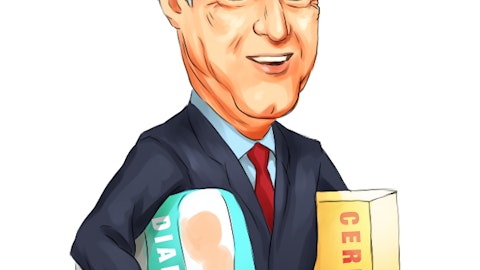AT&T Inc. (NYSE:T) is the largest telecommunications company in North America based on its $281 billion market cap.

The company’s high dividend yield and long history of dividend increases make the company a favorite holding for many dividend investors:
– AT&T has a dividend yield of 5.4%.
– AT&T has increased its dividend payments for 32 consecutive years

A&T’s stock price is more stable than average. The company’s 10 year stock price standard deviation and beta are below:
– Stock price standard deviation of 22.3%
– Beta of 0.78
The company offers investors high yields along with lower-than-average stock price risk.
AT&T has outperformed the market over the last decade. $1 invested in AT&T 10 years ago would be worth $2.31 today versus $1.80 for the same investment in the S&P 500 (SPY).

For a company to have paid increasing dividends for 32 consecutive years, outperform the market over the last 10 years, and be the largest player in its industry, AT&T must have a strong competitive advantage.

Among the investors tracked by Insider Monkey, AT&T is fairly popular, with 60 funds reporting long positions as of the end of September 2015, amassing 1.90% of the company’s stock. However, during the third quarter of the last year, the number of funds with long positions jumped by 11. Warren Buffett’s Berkshire Hathaway initiated a stake in AT&T and disclosed 59.32 million shares in its last 13F filing.
AT&T’s Competitive Advantage
The United States wireless telecommunications market is dominated by 4 companies:
– AT&T Inc. (NYSE:T)
– Sprint Corp (NYSE:S)
– Verizon Communications Inc. (NYSE:VZ)
– T-Mobile US Inc (NASDAQ:TMUS)
Together, these 4 companies have greater than 90% market share. AT&T and Verizon each have over 30% market share.
Competition is reduced when an industry is dominated by only a few large businesses. Lower competition is not good for consumers, but great for the few dominant businesses.
AT&T and Verizon in particular are large enough to reap outsized profits in the wireless industry.
There’s several reasons why the wireless industry is subject to domination by a few large corporations.
1. Up-front costs of building infrastructure
2. Obscene wireless spectrum usage costs
3. Brand recognition and scale advantages
Wireless spectrum usage is controlled and auctioned by the United States government. AT&T spent $18.2 billion in the last spectrum auction. In total, the auction raised $44.9 billion for the FCC. The next auction will begin in March of 2016.
Spectrum auctions prevent smaller players from gaining access to the wireless industry.
Follow At&T Inc. (NYSE:T)
Follow At&T Inc. (NYSE:T)
Receive real-time insider trading and news alerts





